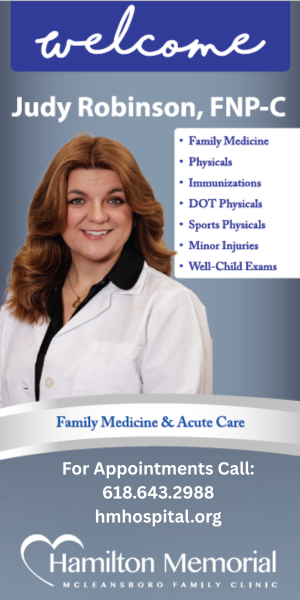By Amy Murphy, Director of Nursing and Allied Health at Southeastern Illinois College
“You Really Want to be a Nurse? You Know all That They Do is Empty Bedpans, Right?”
Across the nation, schools of nursing are in full throes of the application season for fall 2018 enrollment. Prospective students are scrambling to select programs that best suit their needs, complete prerequisite courses, and find financial resources that will carry them through many months of class attendance, skills practice, and study for ridiculously difficult exams. Some of them are also wading and sifting through the many questions about their career choices.
When my own mother announced to a friend (keep in mind this was 1978) that I had chosen nursing as a career path, her response came quickly, “Wonderful! She will marry a doctor!” This statement reflected one of many myths circulating at the time. Myths about nursing education and practice do still exist. Let’s visit a few of those.
“Nursing school is all hands-on. You really just have to care about people to be a nurse.” This one is partially true. Altruism and caring are the fundamental underpinnings of the contemporary, professional nurse, but safe and competent care depend upon robust, rigorous education programs that provide evidence-based instruction.
Florence Nightingale, The Lady With the Lamp, was the first to incorporate education and training of higher skills into nurses’ training. Nurses are required to lead and participate in health care teams and provide complex care interventions that significantly impact patient outcomes. Strong assessment skills, depth of critical thinking, effective management of high fidelity medications, and excellent communication skills are essential components of strong patient advocacy.
“Why be a nurse? You’ll just grow weary of doing the same things all of the time.” Another version of this is, “Nurses get sick and tired of the sick and tired.” Nurses can choose from among approximately 200 specialty areas such as medical, surgical, mental health, pediatric, obstetric, oncology, etc. Many nurses are seeking certificates and advanced degrees in nursing management, practice, and education specialties. And, not all patients are “sick.” There is an increasing emphasis on wellness initiatives, community health promotion, and disease prevention. The field of nursing is persistently evolving, and there will continue to be multiple options for career change and advancement.
“Nurses are just doctors’ helpers.” Nurses are called upon to make clinical judgments and form professional relationships within their scope of practice. Simply following orders from a medical provider will not meet the needs of critically ill patients who may quickly develop complications. The following of orders developed by medical providers is imperative, but healthcare teams now work together with the purpose of achieving favorable clinical outcomes.
A list of nursing rules from 1887 includes the following, “The nurse’s notes are important in aiding your physician’s work. Make your pens carefully; you may whittle nibs to your individual taste.” Yes, documentation is extremely important, but we are well past the days of whittling our own pencils.
“Male nurses are needed in nursing to do the heavy work.” The number of male nursing professionals has tripled since 1970, and they are members of every nursing specialty from obstetrics to geriatrics. Stereotypes are dissolving as nursing is gradually becoming a more inclusive profession. Nursing, traditionally a “white female” profession, is slowly gaining diversity and is no longer viewed as “women’s work.” Nonprofit organizations, such as the Institute of Medicine, are creating initiatives to expand education and employment opportunities that will diversify the workforce and eliminate gender and ethnic disparities throughout the profession.
It is time to dispel the myths once and for all. Nursing is not just a technical job made up of cookie-cutter, white-dress stalwarts who build their professions on “following orders.” Nurses have more responsibility than ever before, and must develop a very broad-thinking and compassionate approach to patient care. The profession is dynamic and best practices will evolve. Time to focus on the future!













